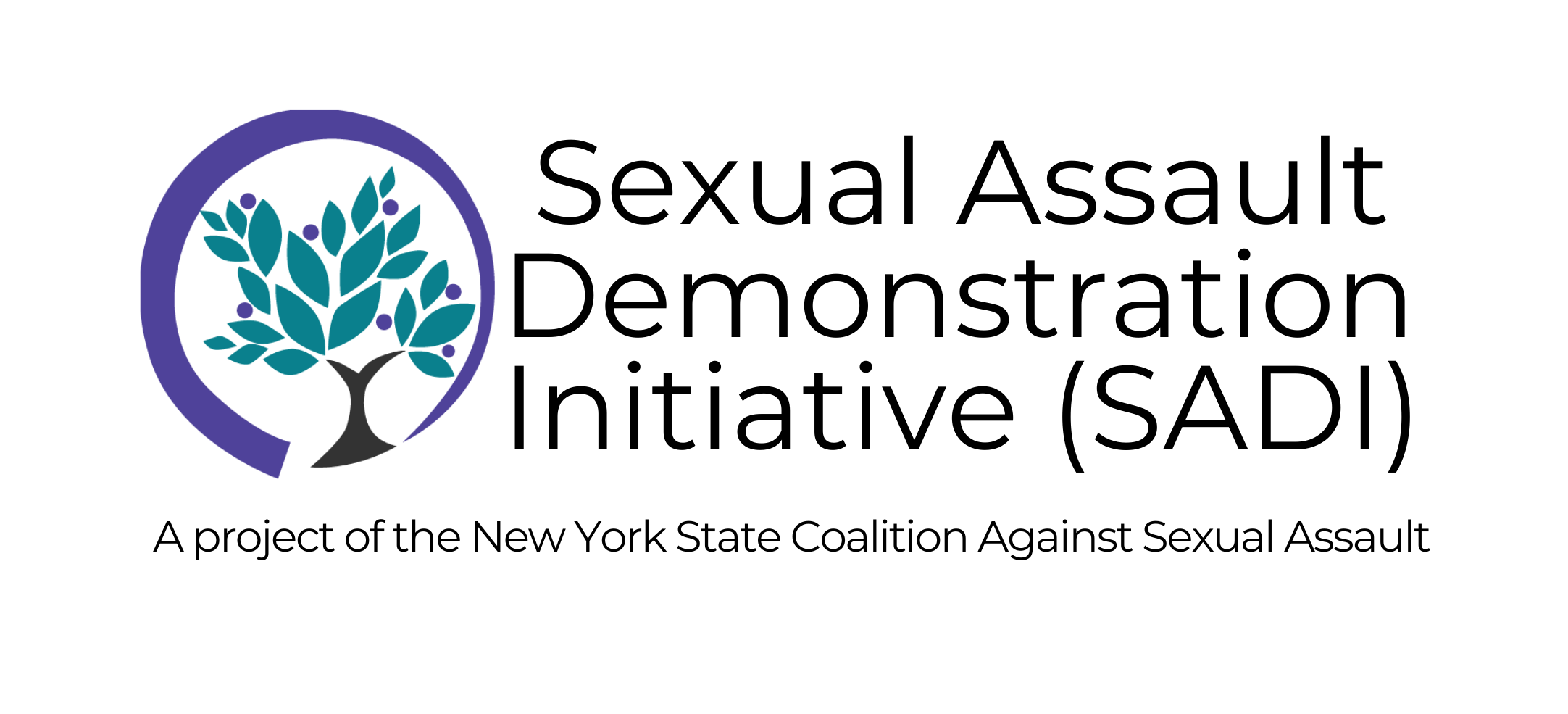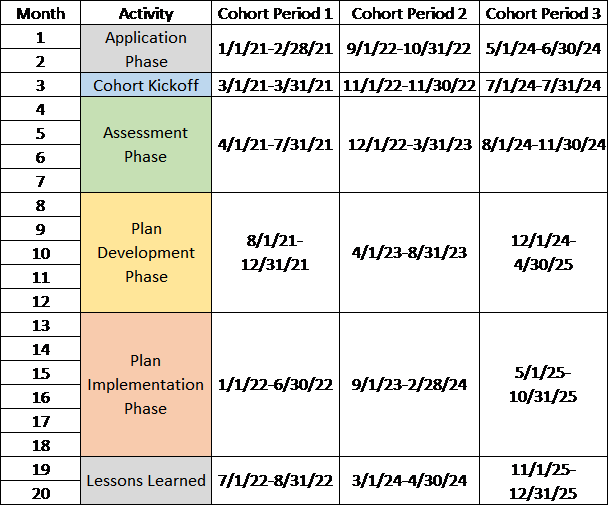What is expected of a SADI site?
In each cohort, participants will be challenged to think critically about their agency perception in every community in their area (explicitly with communities not as robustly served by the agency, historically), assess dynamics in their agencies, listen to communities and their needs, and, most importantly, enhance services to be reflective of the communities they serve. This journey will be based on the principles of community growth, critical reflection and introspection, an inclusive and equitable framework, and will be action driven.
Expectations of the SADI sites support successful outcomes and include:
- a willingness to be open to self-examination and change
- participation of one staff member who is in a leadership, decision-making position and one staff member who is in a frontline sexual assault intervention or prevention position in monthly activities (additional staff may participate)
- Participation of Executive Leadership on a quarterly basis (peer support calls among EDs)
- review/use of information/materials provided by NYSCASA
- participation in a 15- 45 minute check-in call each month
- collaboration with NYSCASA during each phase of the cohort
- participation in a 1-to-2-hour activity each month (e.g., in-depth one-on-one technical assistance call, collective peer learning call, or training presentation)
- equipment/technology needed to participate in videoconference calls, webinars, and other virtual meetings (e.g., computer with webcam and internet access)
What is the timeline?
During the assessment phase, NYSCASA will share census data and work with each SADI site to identify one or two historically underserved populations to focus on for additional data collection. We will conduct, or we will assist the SADI sites to conduct, interviews and/or focus groups with community members. This information will drive the next phase.
During the plan development phase, NYSCASA will help each SADI site identify areas of opportunity to strengthen their work internally and externally. We will provide training, technical assistance, and resources that respond to the issues identified in the assessments.
During the plan implementation phase, we will assist sites with reviewing and updating organizational policies and practices related to sexual assault. We will collaborate to create and implement strategies to increase community awareness of agencies’ sexual assault services.
This cohort will culminate with a celebration of achievements, followed by sharing of lessons learned with the field.
Will activities be held virtually or in-person?
Cohort activities will be conducted virtually until further notice. Once in-person events become safe again, we will reconsider holding an in-person meeting for cohort members.
Are there any costs or funding opportunities associated with this project?
While there is no subgrant opportunity, there is a limited amount of funding available to support SADI sites’ participation and successful outcomes.
For example:
- If we convene an in-person meeting, we will be able to provide travel stipends to support attendance.
- If a SADI site identifies that updating their website to explicitly include sexual assault advocacy services is needed, some funds may be available to support this and similar measures.
We do not anticipate there to be any costs associated with SADI sites’ participation in this project beyond staff time.




